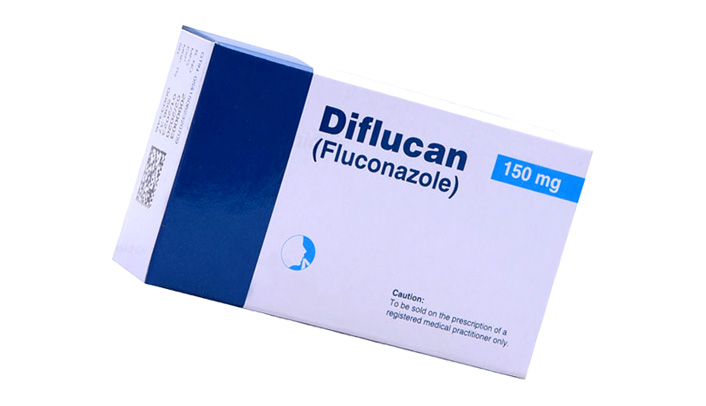Diflucan
The generic name is Flucanazole. Diflucan is an antifungal medication.

Uses
It is used for the treatment of the fungal infections which have the ability to attack any body parts such as throat, mouth, esophagus, bladder, blood, lungs and genital area. Diflucan is also used to stop fungal infections in patients having a weak immune system due to bone marrow transplant, cancer treatment, or diseases like AIDS.
How To Use
The drug is administered orally at a dose of 150 mg once.
Diflucan should be taken exactly as directed by your doctor. All the directions on the prescription label must be followed carefully. This medicine should not be taken in larger or smaller quantity or for a longer duration. The dosage is based on the severity of the infection. Usually only one pill is sufficient to treat vaginal infections. For other type of infections, the first dosage might be a double dose. Follow the instructions of your doctor carefully. Diflucan can be taken with or without meal. The oral liquid or suspension should be shaken well before the dose is measured. This medicine must be used for the full prescribed duration. The symptoms may disappear before the infection is completely cured. Diflucan cannot treat viral infection like common cold or flu.
Side Effects
Get immediate medical aid if you observe any signs of hypersensitive reaction to Diflucan: difficult breathing, swollen lips/face/throat or tongue, hives.
Immediately call your doctor if you have:
- Fever, body aches, chills, flu symptoms
- Convulsions or seizures
- Headache with severe dizziness and chest pain, fast or irregular heartbeat and fainting
- Simple bleeding or bruising, unusual fatigue, weakness
- Liver disorders- upper abdominal pain, nausea, tiredness, itching, loss of appetite, clay-colored stools, dark urine, yellowing of eyes or skin (jaundice)
- Severe skin reactions- sore throat, fever, swollen face/tongue, skin pain, burning sensation in eyes, followed by a purple or red skin rash, peeling and blistering
- Headache
- Stomach pain
- Changes in sense of taste
- Dizziness
- Diarrhea
- Upset stomach
This list does not provide all the side effects. Notify your doctor if you observe any other side effects.
Contraindications
Hypersensitivity to fluconazole, other azole compounds or any of the excipients of the drug.
Concomitant use of fluconazole and terfenadine in patients who use fluconazole repeatedly in doses of 400 mg/day and above.
Do not use this drug if you are hypersensitive to fluconazole, or if you also use pimozide, cisapride, quinidine or erythromycin.
To ensure that the use of Diflucan is completely safe for you, let your doctor know if you have:
- HIV or AIDS
- Cancer
- Liver disorder
- Cardiac rhythm disorder
- Heart disease
- A family or personal history of QT prolongation
- Kidney disorder
- If you are hypersensitive to other antifungal agents like miconazole, itraconazole, voriconazole, posaconazole and others
The oral suspension of Diflucan contains sucrose. If you have a problem in milk or sugar digestion, talk to your doctor or chemist.
Pregnancy And Diflucan
Do not take this medicine if you are pregnant. Long term usage of this drug may cause birth defects or harm the fetus. Fluconazole has the potential to be excreted into the human milk and cause damage to the nursing infant.
Drug Images

The images of medicines shown in the pictures may vary depending on the dosage, brand name, and for medicines manufactured by different pharmaceutical companies.
Flucanazole
Fluconazole is an antifungal medication that belongs to the class of drugs known as azole antifungals. It is commonly used to treat various fungal infections caused by Candida species, including yeast infections in the mouth (oral thrush), throat, esophagus, lungs, genital area (such as vaginal yeast infections), and other parts of the body.
Fungal Infections
Fungal infections are caused by various types of fungi and can affect different parts of the body, including the skin, nails, genitals, throat, and internal organs. Fungi are present everywhere in the environment, and most are harmless. However, some types of fungi can cause infections when they overgrow or invade the body.



